What is 'Fred'?
On Thursday, March 9th, SEMrush’s Sensor recorded a 6.9 out of 10 volatility rating, leaving many in the SEO community on the edge of their seat. While Google has yet to disclose any official news on an update, site rankings across the web have noticed movement ranging from mild to drastic in search engine results pages (SERPs). Many sites saw their visibility increase greatly; others received substantial negative momentum.
Most familiar with SEO understand that inbound and outbound links are an information highway, making natural link building of the utmost importance. But now, Google has revamped its approach to risky link profiles, and is really hitting them hard. In what has been called the 'Fred' update, Google has increased punishment to outright spammy link profiles and could be digging into anchor text and other on-page content to check the relevancy of links.
'Fred' seems to be a link quality algorithm update, measuring websites according to other sites that link back to them. Ad-heavy sites with low quality backlinks appear to be taking the most serious hit with this new algorithm update.
What to do
Here are some simple strategies that will help pivot your SEO strategy and avoid search ranking penalties at all costs.
1. Ask the question, "Is this link benefiting user experience?"- Make sure none of your links are from spam, low quality directories or the dreaded link farm. Your analytics should flag these immediately and any outbound links should be quickly deleted.
- If a link has a low page score and does not relate to your bottom line, get rid of it. Our research indicates 'Fred' is targeting these specific type of links as they do not provide benefit to the user.
2. Feed the content monster.
- Provide links with quality anchor text to external sites that are relevant and support the information on your site. Do so in a meaningful way that highlights the fact that your content is awesome, accurate, and corroborated by other high ranking sources.
- Does your content already link to other internally or externally important pages? Review your site and crosslink where possible.
3. Gain momentum.
- Develop a list of authoritative websites that you'd like to have link reciprocity with. These sites should be directly relevant to your site visitors. Reach out to other webmasters and showcase the value your link could add.
- Keep all links growing – Google appreciates ongoing updates and rewards up-to-date websites.








